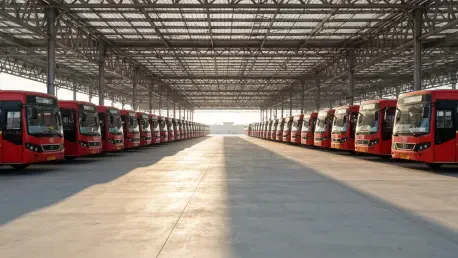
The convergence of artificial intelligence and robotics has officially moved from the realm of speculative fiction to a tangible and strategic asset for the global tourism industry, a transformation vividly demonstrated at the inaugural First National Cultural Tourism Industry Robot Tech Fun

As millions of residents and visitors across Karnataka finalize their travel arrangements for the beginning of the new year, a significant shadow of uncertainty looms over the state's public transportation network, threatening to bring daily life to a grinding halt. A high-stakes labor dispute

The decision to book a stay at a flagship deluxe resort often comes with the expectation of a seamless, immersive, and high-end vacation experience, a standard for which guests are willing to pay a premium. However, a significant, long-term refurbishment project currently underway at Disney's

The staggering cost of flying within Canada has ignited a fierce national debate, creating a significant rift between the government's official explanation and the lived reality of travelers. While Federal Minister of Transport Steven MacKinnon publicly defends the exorbitant prices as an

The anonymous environment of a hotel room, designed for temporary comfort and fleeting stays, can paradoxically become a stage where the most permanent aspects of a person’s character are revealed. Long after financial circumstances may have shifted, the subtle, almost unconscious habits developed

Once primarily known as a destination for intrepid backpackers and history enthusiasts, Vietnam is rapidly and decisively rewriting its story. The nation is now emerging as one of Southeast Asia’s most sought-after hotspots for family tourism, drawing in record numbers of visitors seeking a blend